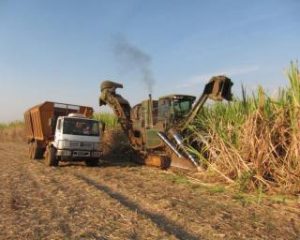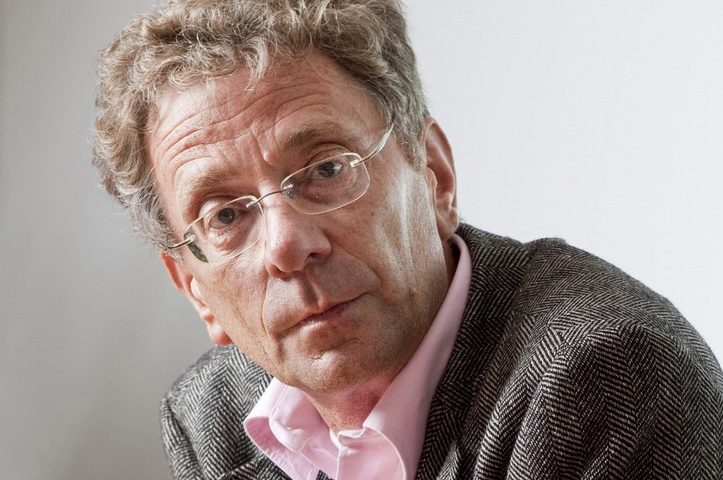Modernization and mechanization of agriculture can be done in a social acceptable way by offering farmers new opportunities and farmers should benefit socially and economically, says Nico Roozan, Executive Director, Solidaridad, in an exclusive interview to Shakti Sharan. Solidaridad is a Netherlands based global civil society organization providing solutions for sustainable production practices across the world.
Please explain the Ambition 2020 Programme? How is it being implemented?
Our strategic plan for next 4 year is aimed at innovations in our work that address new elements, for example, climate agenda, issues related to mobilization of new funds, gender equality issues, etc. So, there are many innovations in our annual strategic plan to take our work to next level. What I see, the main objective of Ambition 2020 is to use funds received from public, governments, various foundations and private companies to optimum and develop a system in which we test innovations and good practices of farmers, creating robust infrastructure in agriculture to take it to the level where it is supported by investors, by policy frameworks of governments to bring it to scale and speed. Though, we are measured on result and impact of our own programmers but I think the real deliverable of a programme is to maintain its continuity so that it is supported by bankers, investors, traders and companies. So, scale and speed is necessary for implementation of programmes.
What scope do you see for expansion of your programmes in India?
Our emphasis is on many issues. One of them is addressing the issue of water and the issue of degraded areas. We think that water scarcity is a limitation for agriculture developments in this region. We have developed smart solutions for better use and reuse of water as a pre-condition for the growth in agriculture sector. The other issue is of degraded land in India due to water scarcity and due to loss of soil fertility. So reintegrating and reclaiming degraded areas is a pre-condition to feed the local, to create food security for local community and also make India a food exporter for wealth. There is a need to expand the potential of the country by reclaiming the degraded areas. Our emphasis is also on the necessity to address issues of size of production and ownership of land and the possibilities of creating scale by cooperation between farmers, lease contracting and all kinds of new models to bring agricultural production in India to optimum and develop a model structure of production. Another crucial work is to create a climate smart agriculture and techniques to help farmers resist the consequences of climate change. So, there are many issues of innovations to develop good practices for farmers and create more robust infrastructure for farming, and to have partnership in businesses and companies to bring it to scale and speed.
 Can you share some success stories of your programmes in different countries?
Can you share some success stories of your programmes in different countries?
Solving problems in sugar sector in Latin America and Brazil are very good examples of our capacity. In Brazil one of the issues is the mechanization of sugar harvest. Harvesting sugar manually in the tropical region is not only a heavy work load for a workers but inhuman too. One of the long terms solution is mechanization. But the challenge is, if you mechanize the sugarcane harvesting, one sugar harvester in half acre will replace 80 people. So, we have to create alternatives for these people and through our program we rehabilitated these people in economy. Today, the boost of innovation and mechanization given to the sugar sector in Brazil is not only producing sugar but also ethanol as bio-fuel, has created a dynamic in the processing industry. In processing industry there was a high need of labour, so, the people replaced above moved out of agriculture sector to the processing industry and now, they are earning thrice or five times more than their original profession. So, modernization and mechanization of agriculture can be done in socially acceptable way by offering people new opportunities. We have also addressed serious social issues in sugar industry in Central America including issues related to kidney disease which is serious issue in sugar industry all over the world. We have introduced a strict protocol which has now reduced the incidents of kidney diseases significantly. Likewise, in many sectors our programmes have made a difference in the lives of farmers. About one and half million farmers all over the world have been directly benefited from our programs but we are looking for next step. I think new technologies will also offer new opportunities. We can develop a system in which best practices are identified by the farmers themselves. So, documenting the indicators like water use, carbon issues, productivity issues, farmers are performing better and best practices related to these indicators/performance becomes significant. It can be shared among farmers.
What kind of crops or regions have identified by you to start the programme?
We have identified sugar, cotton, palm oil, castor and aquaculture, but the approach will be multi sector touching the thousands of farmers. Tea is of course another crop. Our innovation will help farmers improve their sustainability performance. Indian tea community has committed themselves to make the sector more inclusive and sustainable. This is a huge step forward. We want to work with this type of optimism and engage with big companies in the region.
What kind of response are you getting from companies and farmers organizations of India?
I see a growing support from all segments of the society and central and state governments. But for us the most crucial thing is to be close to farmers. Farmers should benefit socially and economically. Our programmes are led by this objective.
How open is the Indian farmer for adopting innovation and new technology?
Indian society is very open for new technologies. Farmers are demanding the systems that can be useful to them. We are making tailor made information systems for them which they can access easily.
——————————————————————————————————————————————————————————–




